Civic Media is betting on local pro-democracy radio in Wisconsin
A new radio network with 20 stations covering wide swaths of the state seeks to report more local news, challenge conservative talk radio dominance and support democracy, but there have been missteps accompanying its growth.
Wisconsin Watch
October 23, 2024
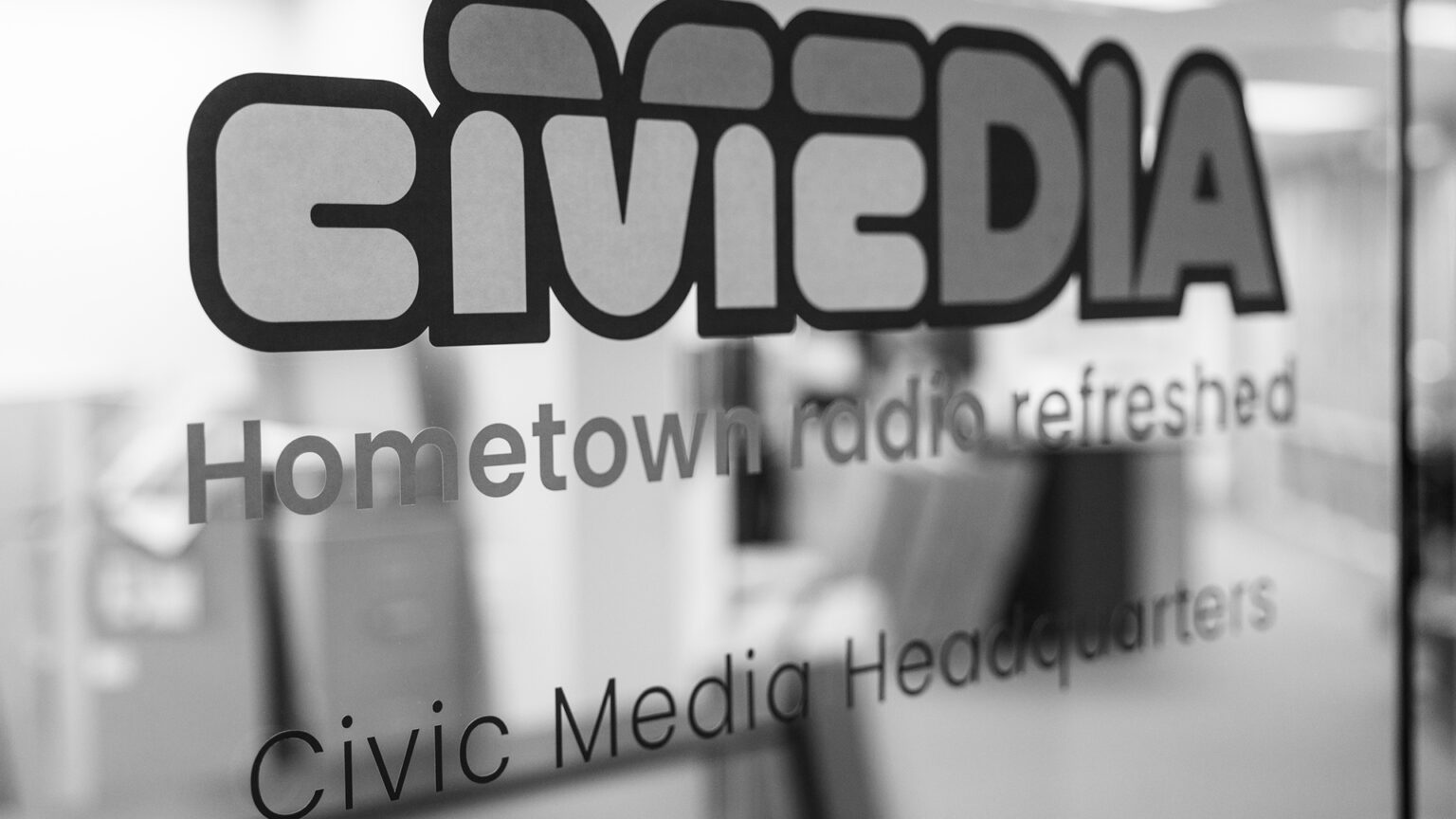
A sign marks a door at the Civic Media headquarters on July 8, 2024, in Madison. (Credit: Joe Timmerman / Wisconsin Watch)

This story was originally published by Wisconsin Watch.
In an office space overlooking Wisconsin’s State Capitol sits the command center of a talk radio experiment that could tip the outcome of the Nov. 5 presidential election.
It’s an experiment that has grown rapidly, at a surprisingly affordable cost as far as media empires go, but with a number of high-profile stumbles in recent months.
This is the story of Civic Media, a network of 20 Wisconsin radio stations purchased over the past two years with the goal of promoting democracy and local news.
The nascent radio empire built by tech entrepreneur Sage Weil and veteran radio host Mike Crute now covers nearly half the state, from WBZH in northwestern Wisconsin to WRJN covering Racine and Kenosha in the southeast.
Funded primarily by Weil, the company spent more than $9 million acquiring stations in an effort to challenge the dominance of conservative talk radio and provide center-left programming in underserved media markets. The signal range of all Civic stations now reaches an estimated 2.6 million Wisconsin residents, according to Jorge Reyna, Civic’s vice president of marketing.
Civic considers its work vital in strengthening civic engagement, particularly in a time when media feels increasingly polarizing. Most of Civic’s programming, Weil said, is “not just supporting democracy,” but “improving the practice of democracy.”
Despite previous failed attempts to grow left-of-center talk radio across the country, Civic’s leaders hope to build a sustainable business that can serve as a model for companies in other states.
But the model is still unproven, and it’s yet to be determined if Wisconsin residents are tuning in to Civic’s brand of talk radio. Weil said the network is “a grand experiment” and hopes that with a focus on local issues, it can help listeners “re-engage in a democratic process to be better informed about what’s going on, give them fact-based news and help them understand where things stand.”
The network also has found itself embroiled in a series of controversies in 2024, from a host being fed questions ahead of a high-profile interview with President Joe Biden, which was subsequently edited at the campaign’s request, to a public and bitter breakup between Weil and Crute.
Talk radio as a key political tool
Civic Media stands out amid a radio environment dominated by conservative talk, whose wide reach still plays a major role in American politics, according to journalist Katie Thornton.
Thornton created The Divided Dial, a five-part podcast series for WNYC’s On the Media that examines radio’s enduring popularity and how the medium has become a hub for conservative ideas and far-right boosterism, including the false claim that the 2020 election was stolen from Donald Trump.
“Radio is influential across demographic groups, across urban and rural groups, across age groups, and so it really is influential the country over,” Thornton said. “It is still one of the most influential mediums, and it’s consistently ranked at the top of the list of most trustworthy media alongside newspapers.”
In 2022, the Pew Research Center reported that 82% of Americans listen to the radio, and 47% “get news from radio at least sometimes.”
Mike Wagner, a journalism and mass communication professor at the University of Wisconsin-Madison, said conservative talk radio remains “the dominant talk format that deals with civic life and politics” in Wisconsin.
Despite conservative media’s dominance, small pockets of liberal media could be found on the air, including “The Devil’s Advocates,” a Civic Media show previously hosted by Crute and his longtime friend and college roommate Dominic Salvia.
Crute and Salvia started broadcasting in February 2012 to bring their political debates to a larger audience — Crute leans left, while Salvia presents a libertarian point of view.
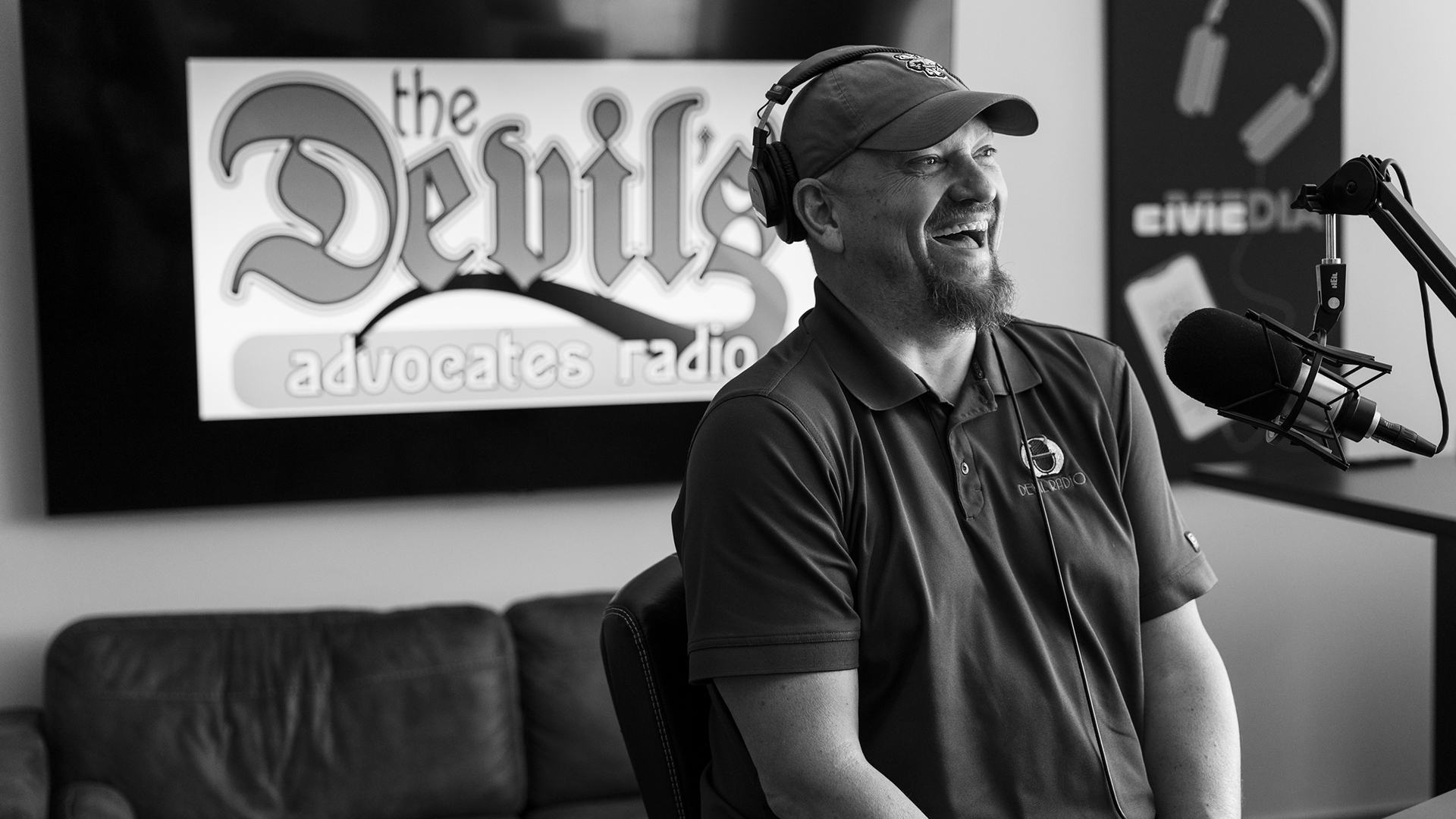
Mike Crute, co-host of “The Devil’s Advocates” and co-founder of Civic Media, prepares for his show’s afternoon segment with Dominic Salvia on July 8, 2024, at the Civic Media headquarters in Madison. (Credit: Joe Timmerman / Wisconsin Watch)
“When we would go to a bar on Friday night and talk politics, we would have half the bar joining us,” Crute said. He approached a contact at Madison-based WXXM and bought airtime on The Mic 92.1 FM: $1,000 per month for an hour of airtime every Saturday.
Eventually, the show expanded to three hours and became a highly rated progressive talk show nationally during the 2016 presidential election cycle, according to Crute.
But that didn’t stop The Mic from pulling “The Devil’s Advocates” off the air.
On Oct. 25, 2016, The Mic, owned by iHeartMedia, which owns WISN, the state’s largest conservative radio outlet, told Crute it would not renew the show’s contract. Crute said the station owner told him the decision was financial, not political.
On the day after Trump was elected president, The Mic, which hosted shows from progressive hosts like Alan Colmes, Thom Hartmann and Stephanie Miller, ceased airing its progressive talk shows. The station began playing Christmas music that November and now plays ’80s and ’90s music.
Station ownership key to success
That shakeup prompted Crute to buy WRRD, covering Milwaukee and parts of Madison, in January 2017 “all in the name of trying to keep lefty talk radio on the air,” he said.
Station ownership has been a critical factor in the failure of liberal talk radio efforts nationwide, according to Thornton. In 2004, liberal broadcast company Air America launched as a challenger to the dominance of conservative media with radio hosts like Rachel Maddow, Al Franken and Marc Maron.
However, Air America shut down in January 2010. Along with other issues, one of the main reasons the network failed was because it didn’t own any stations, Thornton said. Instead, the network syndicated its shows nationwide, leaving them at the mercy of station owners.
“They were having to ask established stations and established networks, many of whom had already sort of gone to an almost round-the-clock conservative format,” Thornton said.
Conservative talk has had no such problem. Part of Thornton’s exploration of conservative radio focused on The Salem Media Group, which describes itself as the “largest commercial U.S. radio broadcasting company providing Christian and conservative programming,” owning 115 stations across the nation and syndicating conservative shows to more than 3,000 stations.
Salem doesn’t own any stations in Wisconsin. But iHeartMedia — which owns 860 stations nationally — owns 19 stations in the state, including WIBA and WISN, and airs shows from conservative hosts Dan O’Donnell, Vicki McKenna and Mark Belling.
“There’s a structural problem with media ownership in the country where all the traditional media properties tend to have right-wing owners,” Weil said.
That’s starting to change. WTMJ, once the home of conservative hosts like Charlie Sykes, is now owned by Good Karma Brands, whose owner has donated to Democrats. And earlier in 2024 the FCC approved the acquisition of more than 250 stations, including seven in Wisconsin, by a company connected to liberal billionaire George Soros. House Republicans have raised objections to the approval.
‘The most strategic investment to fix the political situation’
Weil’s background is not in radio. In 1995, when he was 17, he built WebRing, a web script that links related sites to one another. He built other web-based platforms including InkTank, which sold for $175 million in 2014.
He has poured his wealth into progressive politics, donating over $3 million to the Wisconsin Democratic Party since 2010.
In 2021, Crute attempted to acquire another radio station, the Waukesha-area WAUK. But he didn’t have enough money to cover the cost outright.
“I needed someone to stake me a sufficient amount that if I did this again, I didn’t have to use my house as the collateral,” Crute said.
Crute met Weil at a donor call, where he asked Weil to borrow $250,000 to buy the station. Weil agreed “like, 10 minutes later,” Crute said.
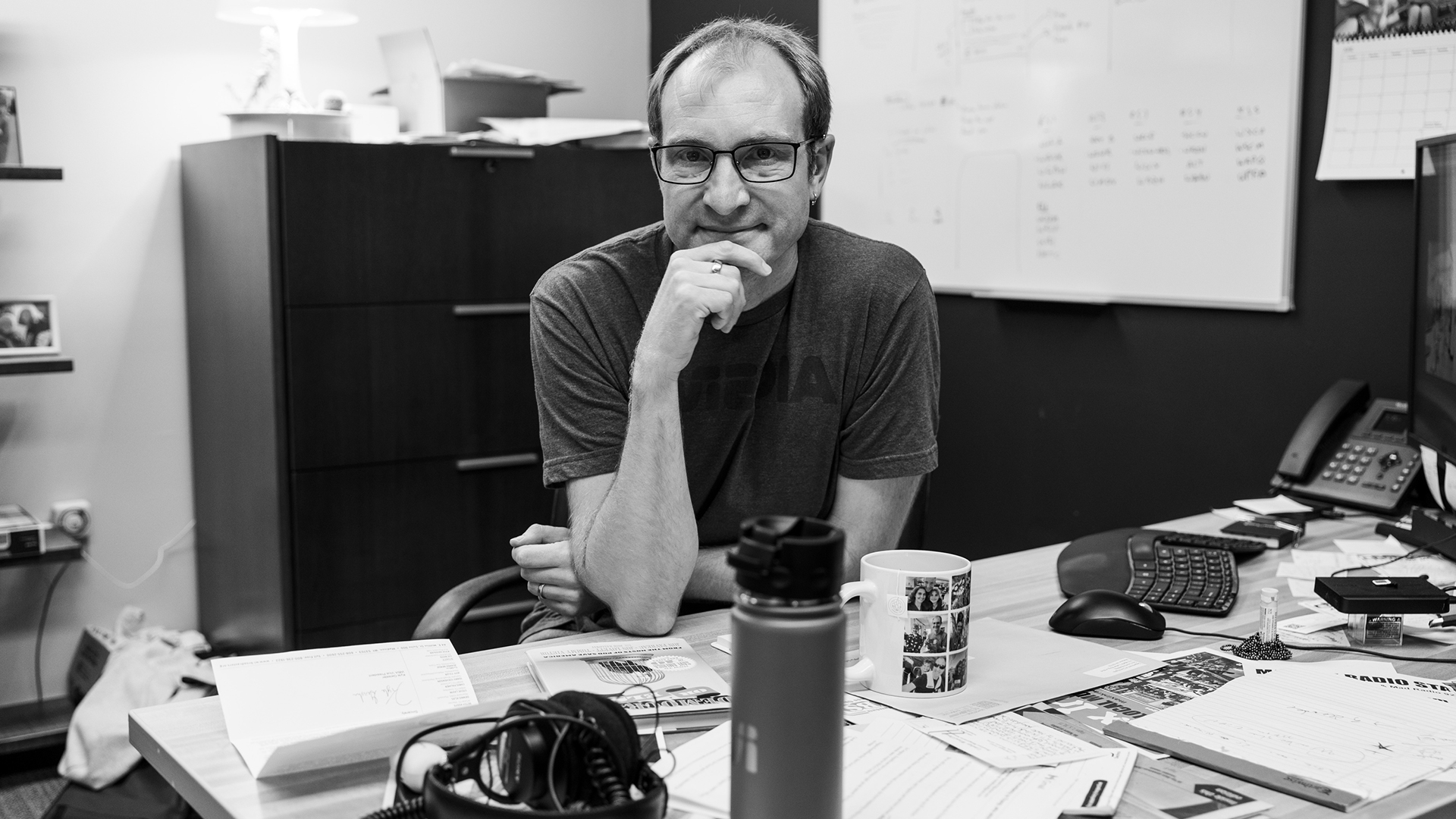
Sage Weil, CEO and co-founder of Civic Media, sits for a portrait while working in his office July 8, 2024, at the Civic Media headquarters in Madison. Weil said he hopes Civic’s station ownership will give the company security while its local focus builds more loyal audiences. (Credit: Joe Timmerman / Wisconsin Watch)
Weil said he was looking at “what is the most strategic investment to fix the political situation,” and he wanted to do it in Wisconsin, where he had moved because of his wife’s job.
He said many conservative radio stations “tend to be huge, problematic sources of misinformation and disinformation with skewed news content and skewed coverage.” A Wisconsin Watch review of four hours of programming from six hosts across the political spectrum found conservative hosts presented the most misinformation.
But the plan at the time wasn’t to buy more stations. It wasn’t until a few months later, Crute said, when Weil suggested that the duo “go big” and buy radio stations all over the state.
How Civic works
Two-thirds of Civic’s stations are news-talk, including sports, according to Weil, while the rest air music.
Civic says it aims to produce pro-democracy radio that promotes civic engagement, faith in elections and other democratic institutions and the bridging of political divides. Crute told Urban Milwaukee in 2023 that Civic is “not trying to beat the drum for the blue team,” but rather “just trying to give them facts.”
But the network’s lineup includes plenty of Democrats.
Pat Kreitlow, a former Democratic state senator, hosts “UpNorthNews Radio” from Chippewa Falls in northwestern Wisconsin. Civic airs it on seven stations from 6 a.m. to 8 a.m. on weekdays.
His show partially serves as a platform for Democratic politicians and progressive activists to spread messages that may not otherwise find a place on the radio, especially in the rural, heavily conservative regions of the state.
“They will hear not just what the right-wing media ecosphere is telling them ought to be the case on every issue, but they’re hearing alternative voices saying, ‘if we were in charge, this is the bill that we would put forward,'” Kreitlow said. “And it’s that variety on the radio dial that we think people are going to respond to.”
Kreitlow interviewed Democratic U.S. Sen. Tammy Baldwin on “UpNorthNews Radio,” asking about her efforts to protect Social Security benefits from Republican-proposed cuts and what kind of cheese curd she prefers (squeaky).
Dr. Kristin Lyerly, an OB-GYN, former Democratic Assembly candidate and frequent guest on “UpNorthNews Radio,” announced her candidacy for Wisconsin’s 8th Congressional District on the show on April 4.
Civic’s lineup excludes Trump-aligned Republicans who otherwise dominate the airwaves, which Weil said reflects a commitment to strengthening democracy.
“It’s very difficult to be pro-democracy and not be voting for, you know, Democrats these days,” Weil told WisBusiness in 2023.
Despite leaning left, Civic’s lineup also includes former Republican political aide Todd Allbaugh, host of “The Todd Allbaugh Show,” which airs across 11 of Civic Media’s 13 talk stations. And former state Rep. Joel Kleefisch, a Republican and husband of former Republican Lt. Gov. Rebecca Kleefisch, hosts a show that focuses exclusively on the outdoors.
Allbaugh is from southwest Wisconsin and served as chief of staff to former state Sen. Dale Schultz, R-Richland Center, who recently endorsed Kamala Harris for president. He described himself as the network’s most moderate host.
“I call out Trump almost every day,” he said. “But I also am pounding away on Tony Evers and the progressive members, the Democrats in the Legislature.”
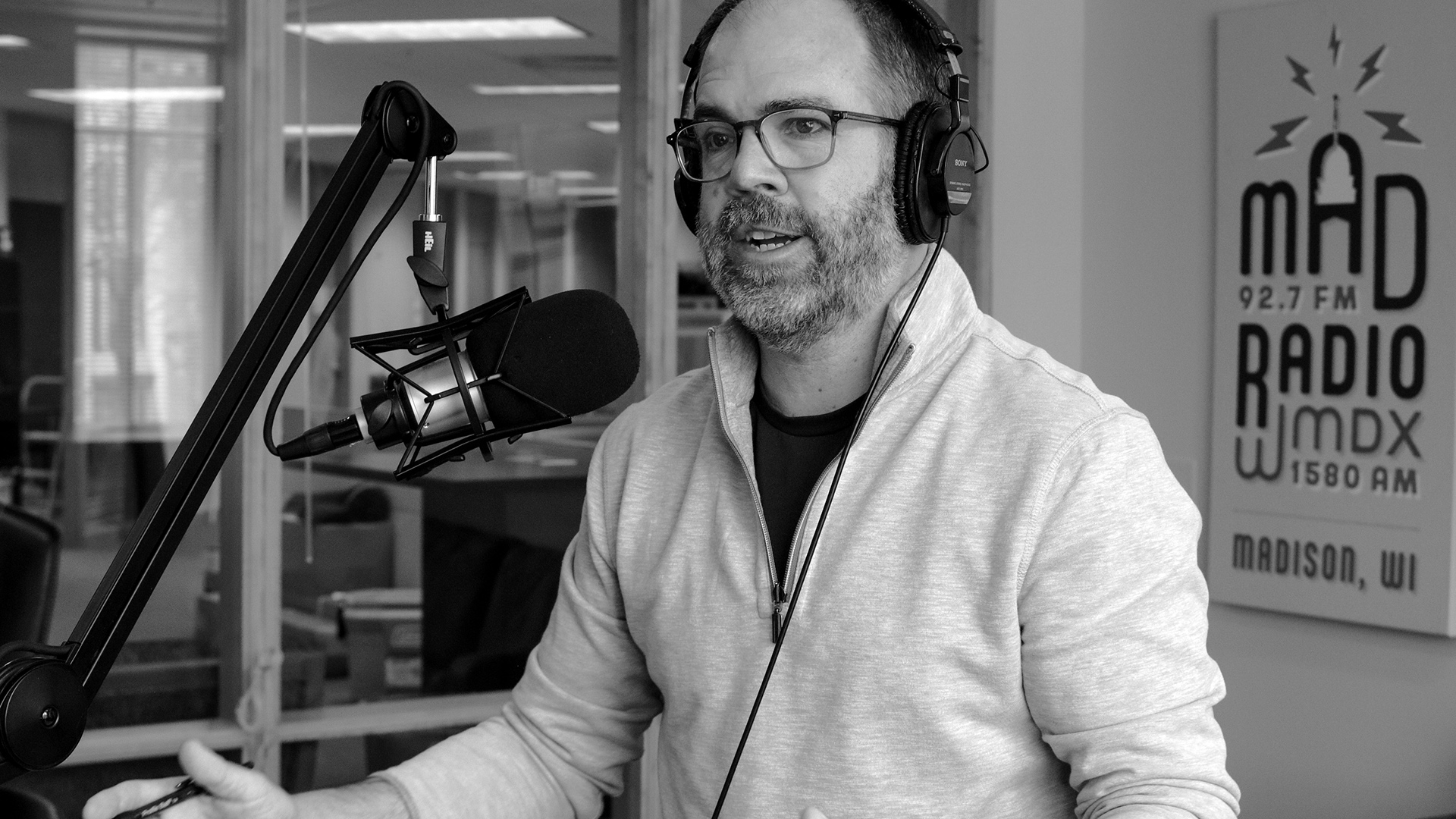
Despite leaning liberal, Civic’s lineup also includes former Republican political aide Todd Allbaugh, host of “The Todd Allbaugh Show,” which airs across 12 of Civic Media’s 13 talk stations. (Credit: Ashley Rodriguez / Wisconsin Watch)
Kathryn Lake, Civic Media’s former program director and current station manager of WMDX, arrived in July 2023 after working more than 20 years in Chicago talk radio. In her previous role she oversaw the schedules for all of the 13 talk stations and coached the radio hosts on proper airwave etiquette.
As part of Civic’s effort to reach moderates, Lake said she advised hosts not to insult Republican-leaning voters on the air. She told them to avoid using terms such as “Republicans” when criticizing GOP leaders in favor of “Republican lawmakers.”
“Some Republicans are part of the GOP, not MAGA, and they are as confused by what has happened to their party as you are,” Lake said. “We need to support them. We need to relate to them. We need to find our commonalities.”
To turn down the political temperature, Civic news director Terry Bell looks for news coverage that facilitates civil discussion and finds common ground.
“Two people who probably wildly disagree on national and global issues tend to agree a lot more on local issues,” Bell said.
Bell seeks well-known local figures who can attract loyal audiences.
WGBW in Green Bay broadcasts a talk show hosted by prominent local radio personality John Maino and former Green Bay Mayor Jim Schmitt. At Chippewa Falls’ WCFW, Civic hired Eau Claire broadcast veteran Mike McKay, who the company said would connect the station “to its roots.”
In August, Civic Media added the “Recombobulation Area” — a weekly opinion column and online publication covering news and politics in Milwaukee and Wisconsin — to its network. Dan Shafer, the column’s founder and self-described pragmatic progressive, became Civic Media’s new political editor.
Weil said he hopes Civic’s station ownership will give the company security while its local focus builds more loyal audiences.
Listener feedback has reinforced that locally focused strategy, said Lewis Friedland, a University of Wisconsin-Madison journalism professor emeritus who Weil consulted to research what radio audiences look for in their programming.
Concerns about a leftward lean
Civic is not the only radio company courting moderate audiences. Earlier in 2024, WTMJ, one of the largest stations in the state and a pioneer of the conservative radio format, announced a new lineup with a “reimagined vision.”
The lineup includes Kristin Brey, who previously hosted a Civic Media show called “As Goes Wisconsin.” Regular listeners of Brey’s show — Democrats and Republicans — reported feeling more supportive of Democratic Gov. Tony Evers than Democratic and Republican nonlisteners, Wagner found.
“It was seeming to make a dent in both sides’ attitudes about the same person, which is a rarity in news or information and communication,” Wagner said.
Brey left Civic Media in December 2023, saying its shows leaned “pretty far left.”
“I care about facts, and I care about information,” Brey said. “I also care about showing both sides.”
Concerns about the network’s leftward lean came into focus earlier this summer when Biden gave an exclusive interview to Civic’s Earl Ingram.
Soon after the show aired, Ingram told ABC News he was fed a list of questions from Biden’s campaign, which he asked during the interview.
Weil released a statement days after the news broke, revealing the interview had been edited after the campaign asked for two cuts to be made to the recording before it aired.
“The production team at the time viewed the edits as non-substantive and broadcast and published the interview with two short segments removed,” Weil wrote in the July statement, revealing the two edited clips “in the interest of transparency.”
“It was a failure of management and leadership in terms of providing the appropriate oversight and guidance,” Weil told Wisconsin Watch.
Disagreement leads to departure
Crute left his leadership role at Civic Media at the beginning of 2024 after reaching a negotiated buyout of his stake in the company. The details have not been publicly disclosed. He and Weil characterized their split as ideological, disagreeing about the goal of the organization.
“I think that it’s fair to say that we have somewhat different opinions about what the most effective messaging approach is and who our audience should be and who we’re talking to,” Weil said.
Crute continued hosting “The Devil’s Advocates” with Salvia on Civic stations until August, when Crute announced the show was to end immediately after a disagreement with Civic. He declined to disclose the specifics of the disagreement, but the network released a statement soon after that Salvia would be back on the air for his own show during the time slot previously occupied by “The Devil’s Advocates.”
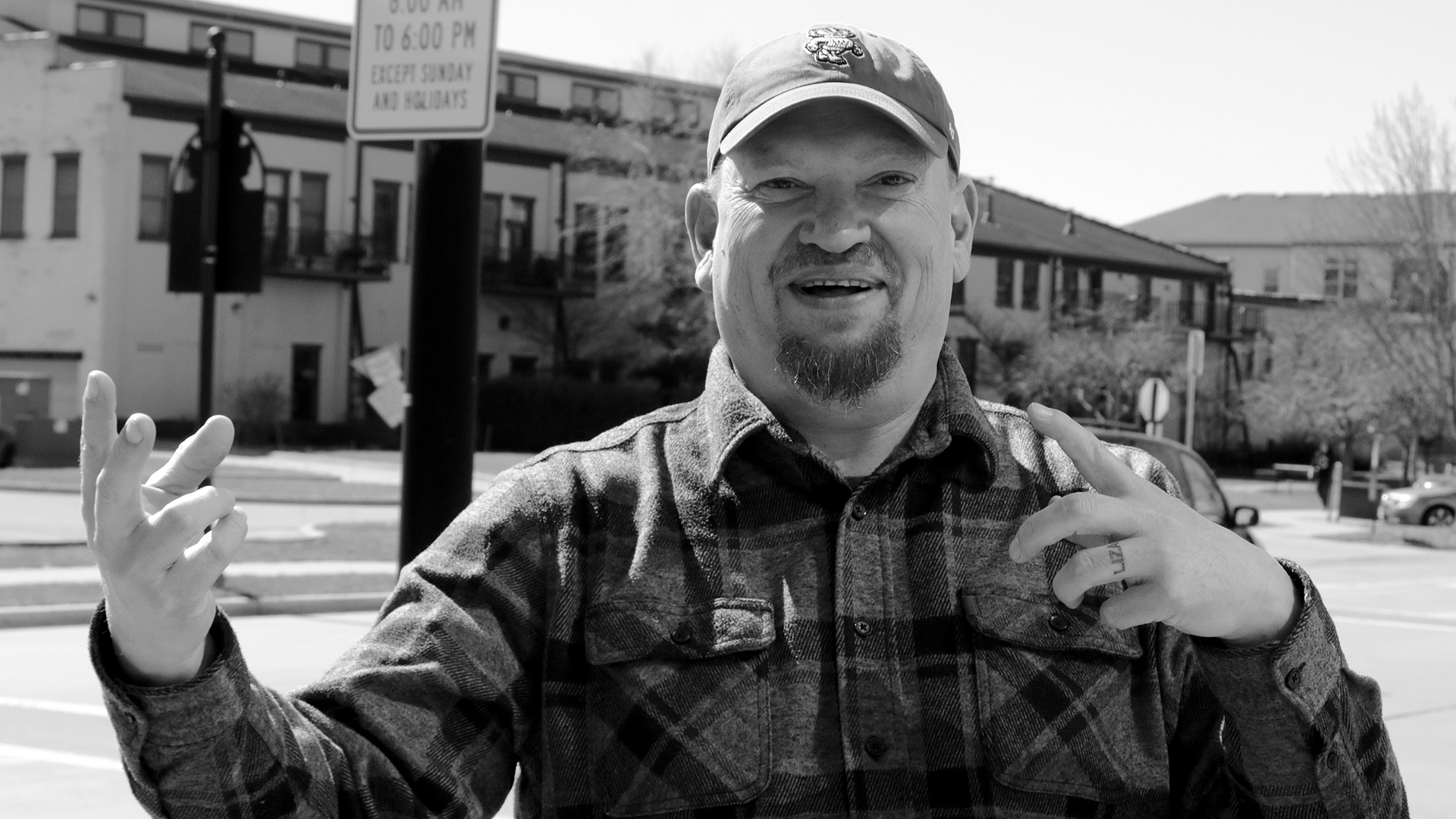
Mike Crute has always been a left-wing agitator. In February 2012, amid a recall campaign against Republican Gov. Scott Walker, he started “The Devil’s Advocates,” a progressive radio show he co-hosted with his former college roommate Dominic Salvia. (Credit: Ashley Rodriguez / Wisconsin Watch)
Crute told Wisconsin Watch he is entirely out of Civic Media now and felt “completely betrayed” by Salvia making his own deal with Weil to have a solo show until the end of 2024. He said Weil “clearly wanted him entirely out of the organization.”
“Dom is very easy to work with, and having him take over that time slot provides some continuity for the audience,” Weil said. “It was sort of a no-brainer.”
Crute decided to end the show immediately after he says Civic informed him it would not renew its current programming contract at the end of 2024. He had also asked to be lead anchor or political program director, but was denied. He said he was incurring all production costs, and Civic was not paying him back, all while “getting their ratings leader for free.”
Weil pushed back, noting that since the show was run as an independent product and Crute was no longer employed, Civic wasn’t obligated to pay him.
“I’m done subsidizing the rich guy’s programming. I asked for a job and apparently this product does not merit pay,” Crute said on the Aug. 29 show. “We are not equal to those that get paid, and that is an inequitable circumstance that I find untenable.”
Weil said Civic was clear about preferring that Crute finish up the contract through the end of 2024 instead of ending the show immediately like he did.
“All things considered, I think it’s probably best,” Weil said.
Tipping the presidential scales in rural areas
Confirming Civic’s long-term sustainability could take years, Bell said.
“People want to know if our product resonates with the public, and they want to know if the business can make money,” Bell said. “And we’re trying, so it’s impossible to say right now. We’re very much in the first or second inning of this baseball game.”
Reyna, Civic’s vice president of marketing, said terrestrial listenership data from the most recent Nielsen survey “wasn’t super encouraging,” but digital listenership has been increasing.
“We’re starting to try to position ourselves in the long term, start now so that we build a rapport and then people are like, ‘Oh, Civic Media? Yeah. We totally trust those guys,'” he said.
The 2024 presidential election will serve as a gauge for how much the talk shows can influence discourse surrounding the election and attract listeners, Reyna said.
“Part of the goal of Civic Media is to gain the trust of people across Wisconsin to know that we tell them something, it’s true and it’s real,” Allbaugh said.
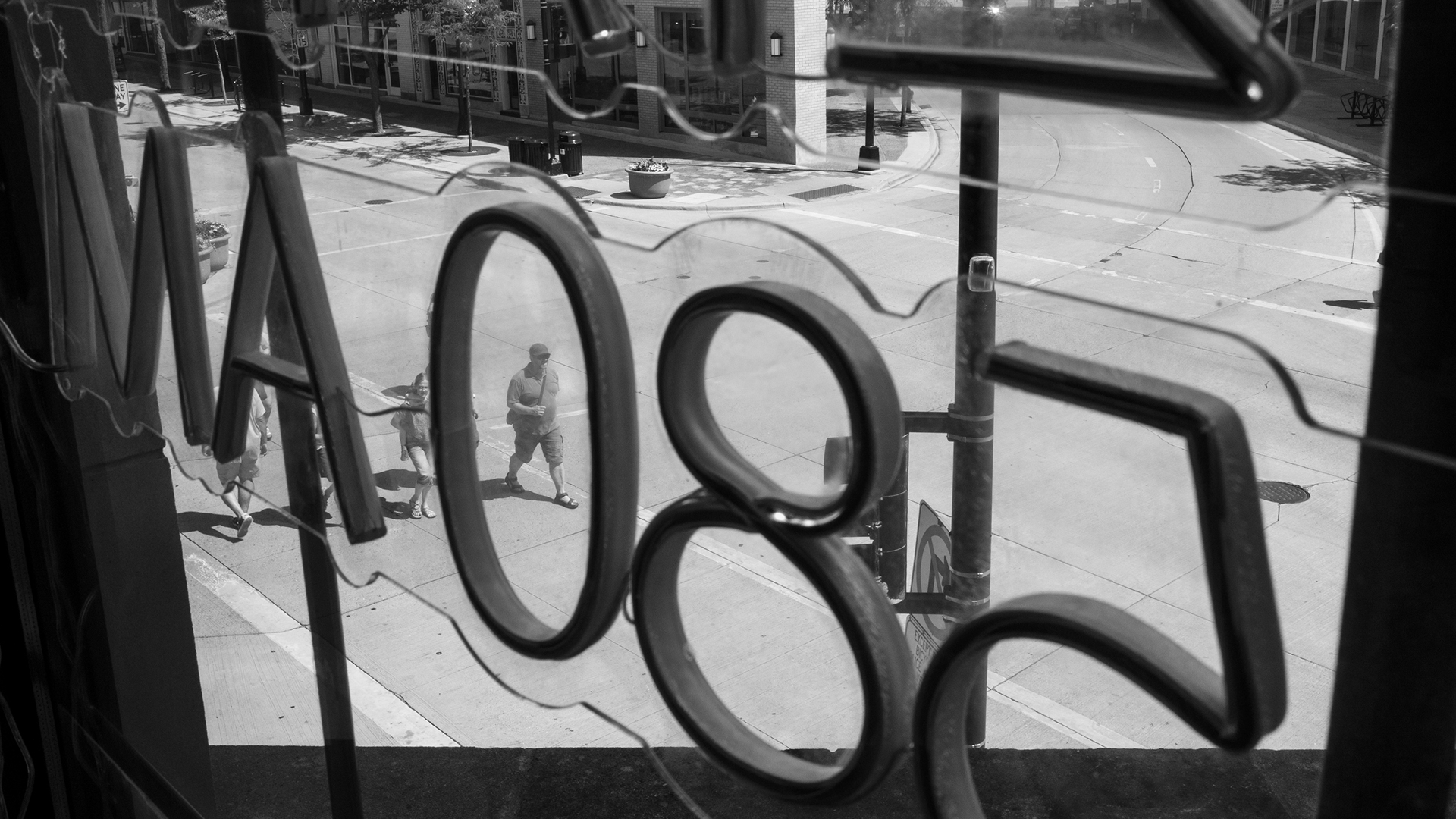
People walk down State Street on July 8, 2024, outside the Civic Media headquarters in Madison. (Credit: Joe Timmerman / Wisconsin Watch)
Civic’s leaders don’t expect to reach all 2.6 million Wisconsin residents living within their signal range. The company has identified about 400,000 residents to target, based on internal calculations that exclude non-radio listeners, “unreachable” conservative talk radio listeners and those who only tune in to music stations, Reyna said.
Civic is still far from that benchmark, but reaching even a tenth of that audience can have significant implications for politics in a state as evenly divided as Wisconsin, Reyna said, considering that Biden won the state by 21,000 votes in the 2020 election.
“The home run scenario for Civic Media from their perspective is to affect the participation in the voting for somewhere between 10,000 and 30,000 Wisconsinites,” Wagner said. “If they do that, they’re gonna be very likely to help (Democrats) hold on to Wisconsin,” which they have to do if they want to win the presidential election.
Bell called the experiment worthwhile.
“The discourse in this country needs to change,” he said. “We’re the first ones trying to break through that wall, and the rest of the industry is looking at us.”
Radio may be risky, but it’s a relatively cheap medium for testing Civic’s model. Weil spent approximately $9.65 million to purchase 20 stations (19 currently on the air). During the 2024 Super Bowl, the American Values Super PAC paid $7 million to run a 30-second ad supporting presidential candidate Robert F. Kennedy Jr.
Weil called Civic more than a progressive response to conservative talk radio and said that he hopes the network can connect diverse groups that value individual rights and the democratic process.
“The challenge so far is just that it’s unproven, and so people don’t like putting up tens of millions of dollars to go buy a bunch of radio stations when that hasn’t happened yet,” Weil said. “But I think once we can show success, then that’ll be easier.”
Wisconsin Watch reporter Hallie Claflin contributed to this report.
 Passport
Passport




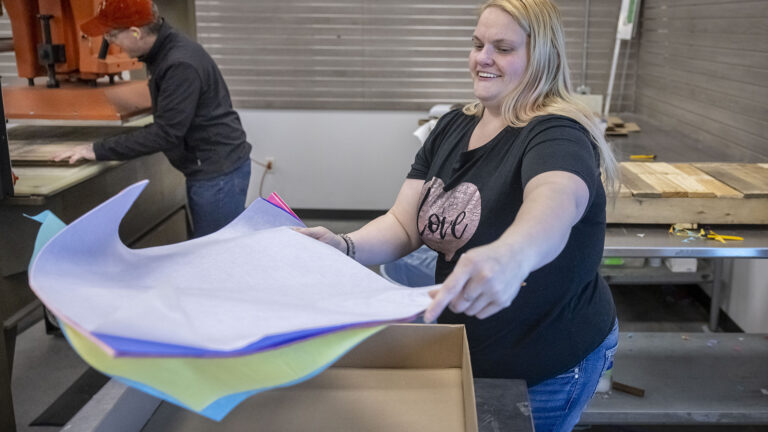

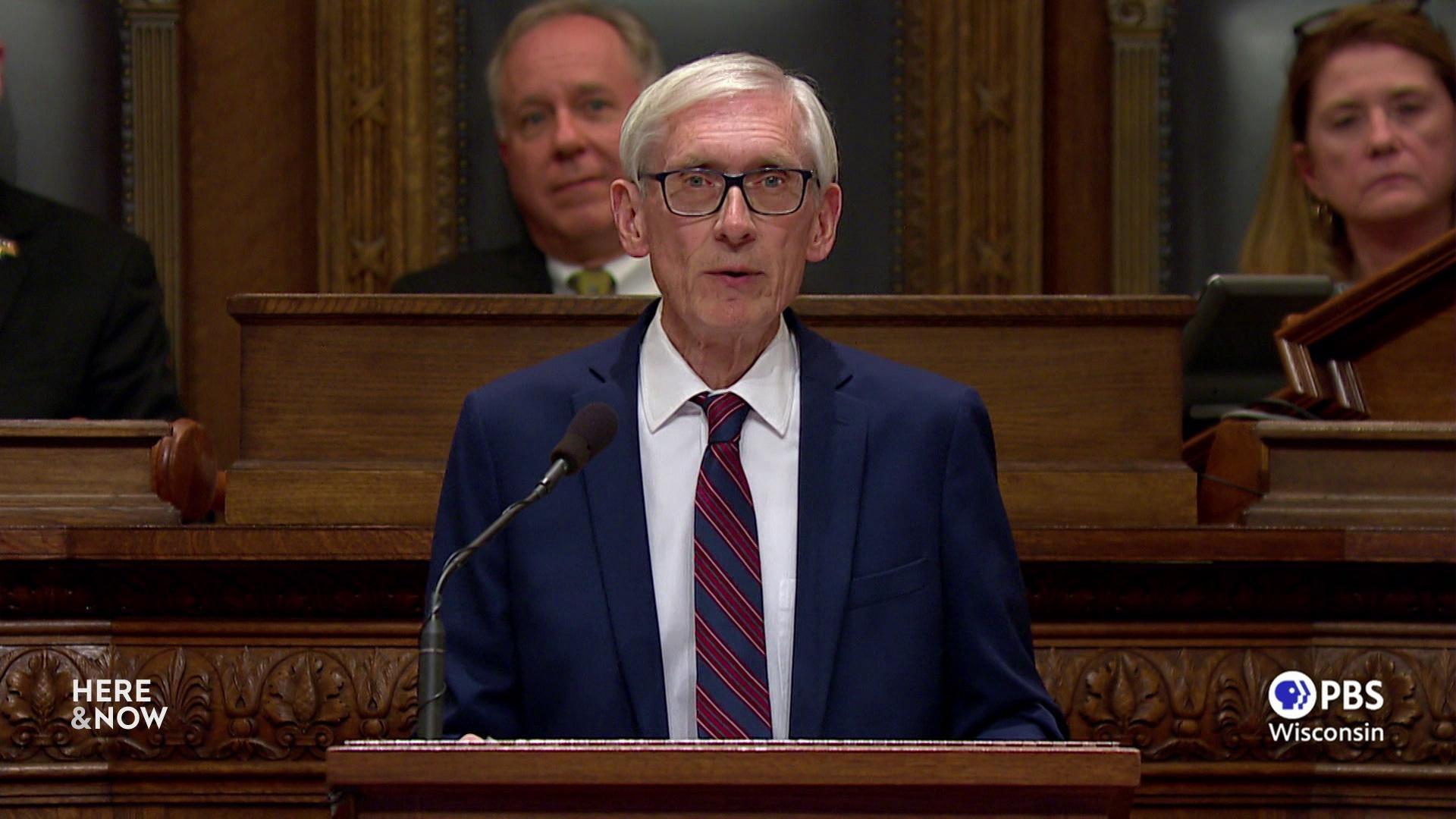

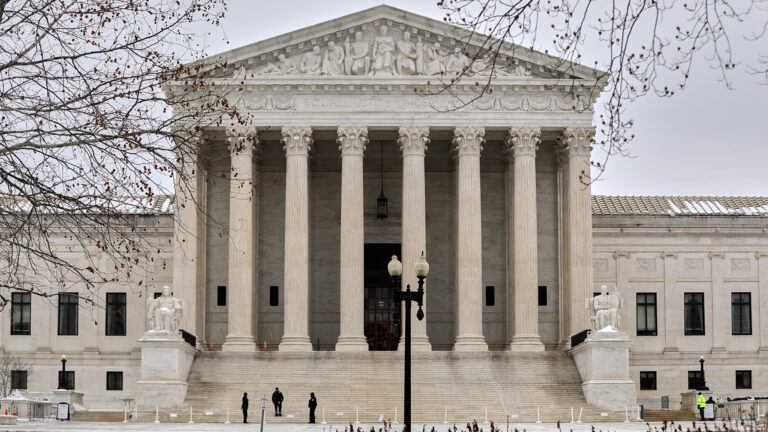


Follow Us